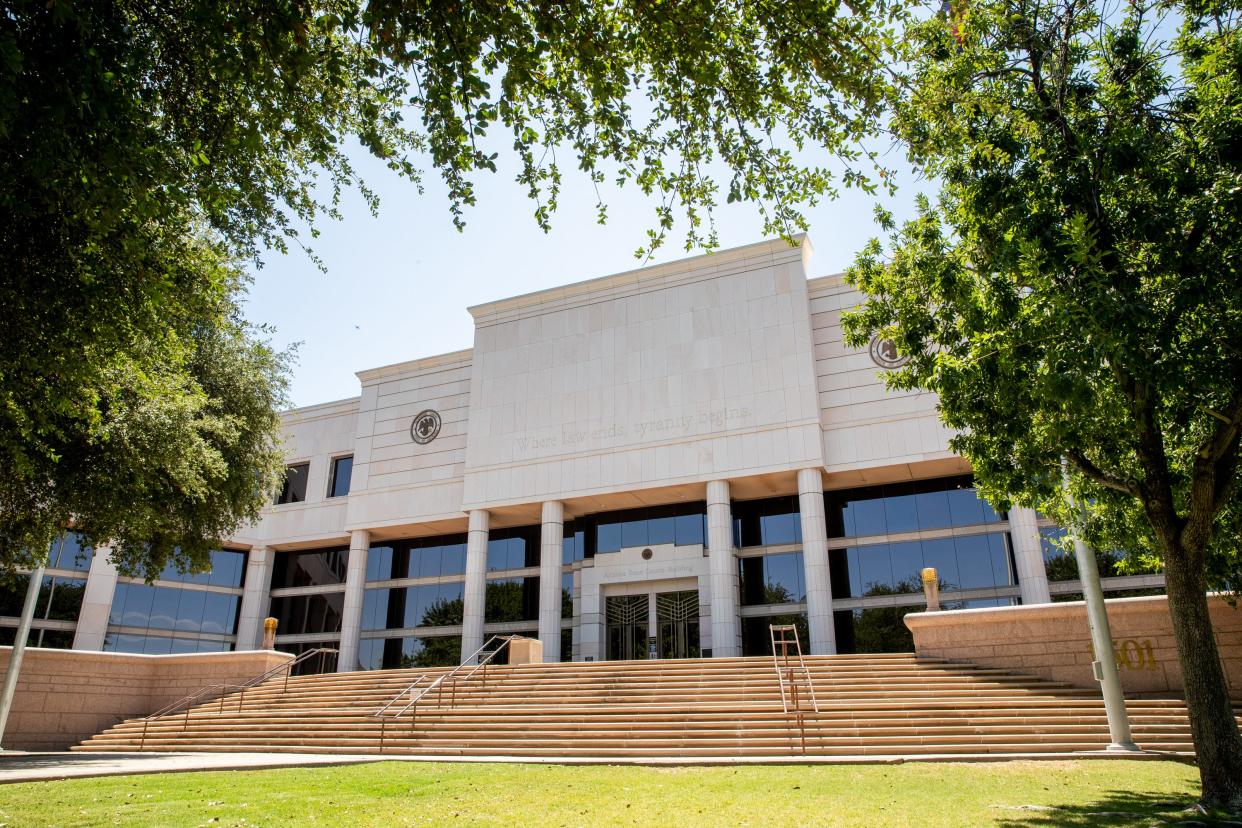2 Supreme Court justices weigh future, offering Hobbs possible chance to fill court seat

- Oops!Something went wrong.Please try again later.
- Oops!Something went wrong.Please try again later.
- Oops!Something went wrong.Please try again later.
- Oops!Something went wrong.Please try again later.
Two Arizona Supreme Court justices are weighing their tenures on the bench — and possibly early retirement, which could give Democratic Gov. Katie Hobbs a chance to put her mark on the court.
Chief Justice Robert Brutinel, the longest-serving member of the court, told The Arizona Republic he is deliberating what to do after his term as chief ends next summer.
“I'm going to consider retirement," he said. “I can stay until I'm 70, but I will probably retire sometime around 2025.”
And Justice Clint Bolick has not yet decided whether to seek another six-year term on the court, according to court spokesperson Alberto Rodriguez.
The uncertainty is such that Bolick has made staffing arrangements to “accommodate whichever decision he makes regarding retention,” Rodriguez said in an email. He declined to provide further details about those accommodations.
Bolick is one of two justices due for a retention election in November 2024, and he has about a year to file formal notice if he wants another term, according to deadlines set in state law.
The other is Justice Kathryn King, the newest member of the court, who was appointed in July 2021. King will seek another term next year, according to Rodriguez.
Bolick would reach the state's mandatory retirement age of 70 in 2027 and Brutinel in 2028, according to the court's website.
By retiring before then, they’d leave vacancies for Hobbs to fill before her term ends in the first days of 2027.
Hobbs, the state’s first Democratic governor in 14 years, could use those appointments to bring more ideological diversity to the court, which today is full of justices appointed by then-Govs. Doug Ducey and Jan Brewer, both Republicans.
Ducey expanded the court to seven members from five in 2016, over the objections of the court's chief justice at the time, and in his two terms as governor named five of the current justices to the bench. Those moves all but ensure the court retains its conservative majority for many years to come.
Brewer named Brutinel to the court in 2010, citing his reputation as “a man of high honor and integrity.” Brutinel previously served 14 years on the Yavapai County Superior Court bench. His fellow justices elected him chief in 2019, and that five-year stint ends July 1.
Bolick was Ducey’s first appointee to the court, made in January 2016. Bolick had spent decades advocating for libertarian and conservative causes. He previously worked for the Goldwater Institute and the Alliance for School Choice and co-founded the Institute for Justice, a national group that advocates for small government.
Arizona politics: Gov. Hobbs pulls her nominees for agency directors from Senate consideration
Justices frequently leave bench before mandatory retirement
Retiring before 70 is common when it comes to recent Arizona Supreme Court history.
The last justice to reach mandatory retirement was Charles E. Jones, who left the bench in 2005 after nine years on the court, according to a list of justices on the court's website.
More recent departures have been for other reasons. Justice Andrew Gould resigned in 2021, after four years on the Supreme Court, to run for Arizona attorney general. Justice Scott Bales, the last Democrat on the court and who opposed Ducey's expansion of it, retired in 2019 after 14 years for a job in academia.
What power does the state Supreme Court have?
As the state’s highest court, Supreme Court decisions are often the final word on criminal and civil appeals and Arizona constitutional questions.
“Everybody likes to talk about the U.S. Supreme Court, but probably day-to-day effect on people's lives … it’s the state Supreme Court that probably has a bigger impact,” Gould said Tuesday. He is now senior counsel at First Liberty, a legal organization that defends religious freedom.
The court has broad duties beyond its rulings. It is the last word on attorney discipline, manages the judicial system that reaches into each of Arizona’s 15 counties, and can enact rules that shape court operations and the cases in them, Gould said.
As one example, in 2021 the court made headlines for a rule change believed to be the first of its kind in the nation. The court ended the use of preemptory challenges, which allowed attorneys to remove potential jurors without giving an explanation. Proponents of the change argued it was a way to prevent racial discrimination in jury selection.
Gould acknowledged the politics of judicial appointments — that governors or presidents of different parties will look for appointees with different qualifications and views. But, in his two-decade career on the Arizona Supreme Court and Yuma County Superior Court, Gould said he saw Arizona judges removing politics from the cases that came before them.
“There’s an old saying you’re not really a judge until you reach a decision where you’re following the law and the facts, and it's a result you don’t like," Gould said. “That's what your task is.”
Reach reporter Stacey Barchenger at stacey.barchenger@arizonarepublic.com or 480-416-5669.
This article originally appeared on Arizona Republic: Arizona Supreme Court justices Brutinel, Bolick weigh future on bench

